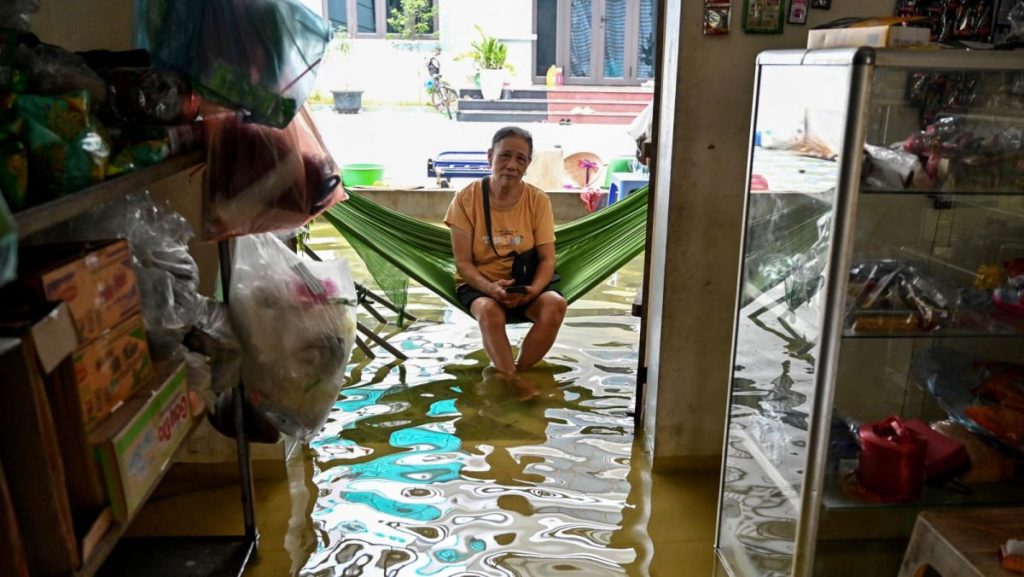Hundreds of people in the suburbs of Hanoi are currently living in floodwaters caused by torrential rains in northern Vietnam. In Ben Voi village, located around 40km from central Hanoi, residents are using boats to navigate the flooded streets and are sleeping in homes partially submerged in muddy water. One resident, Tran Thi Ly, who runs a convenience store from the ground floor of her home, expressed the difficulties she is facing as her customers are finding it hard to reach her shop due to the floodwaters. The 70-year-old had to wade through knee-high water to keep her food supplies dry by moving them to higher shelves, while all her furniture was sitting in the dirty water.
The overflowing rivers have left many residents stranded in the flooded areas, unable to go about their daily lives as normal. With transportation severely limited and basic services disrupted, the people living in these submerged areas are facing significant challenges in meeting their needs. The floodwaters have not only caused inconvenience but also posed a threat to the safety and health of the residents, as they are forced to live in unsanitary conditions with their homes partially inundated by muddy water.
The situation in Ben Voi village highlights the vulnerability of communities in Vietnam to extreme weather events, such as heavy rains and flooding. Climate change is exacerbating the frequency and intensity of these natural disasters, increasing the risk of flooding in many parts of the country. The lack of effective infrastructure and preparedness measures further compounds the impact of such disasters on the local population, leaving them exposed to the devastating consequences of flooding.
In the midst of the flood crisis, residents like Tran Thi Ly are doing their best to cope with the challenging conditions and protect their livelihoods. Despite the adverse circumstances, they are persevering and adapting to the situation as best as they can, such as moving their food supplies to higher ground to prevent them from getting damaged by the floodwaters. The resilience and resourcefulness of these individuals in the face of adversity are a testament to the strength and determination of the human spirit to withstand and overcome hardships.
As the floodwaters continue to submerge the suburbs of Hanoi, it is crucial for local authorities and relief agencies to provide assistance and support to the affected communities. Immediate relief efforts, such as providing food, clean water, and shelter to those in need, are essential to alleviate the suffering of the flood-affected residents. Furthermore, long-term measures, including improving infrastructure and implementing disaster preparedness initiatives, are necessary to enhance the resilience of these communities to future flooding events and mitigate the impact of climate change on vulnerable populations.
Ultimately, the flood crisis in Hanoi underscores the urgent need for concerted action at the local, national, and international levels to address the challenges posed by climate change and natural disasters. By working together to build more resilient and sustainable communities, we can help protect the lives and livelihoods of people living in flood-prone areas and ensure their well-being in the face of a changing climate. Only through collective efforts and a commitment to building a more resilient future can we effectively respond to the growing threats of climate change and safeguard the welfare of all individuals, especially those most vulnerable to its impacts.















